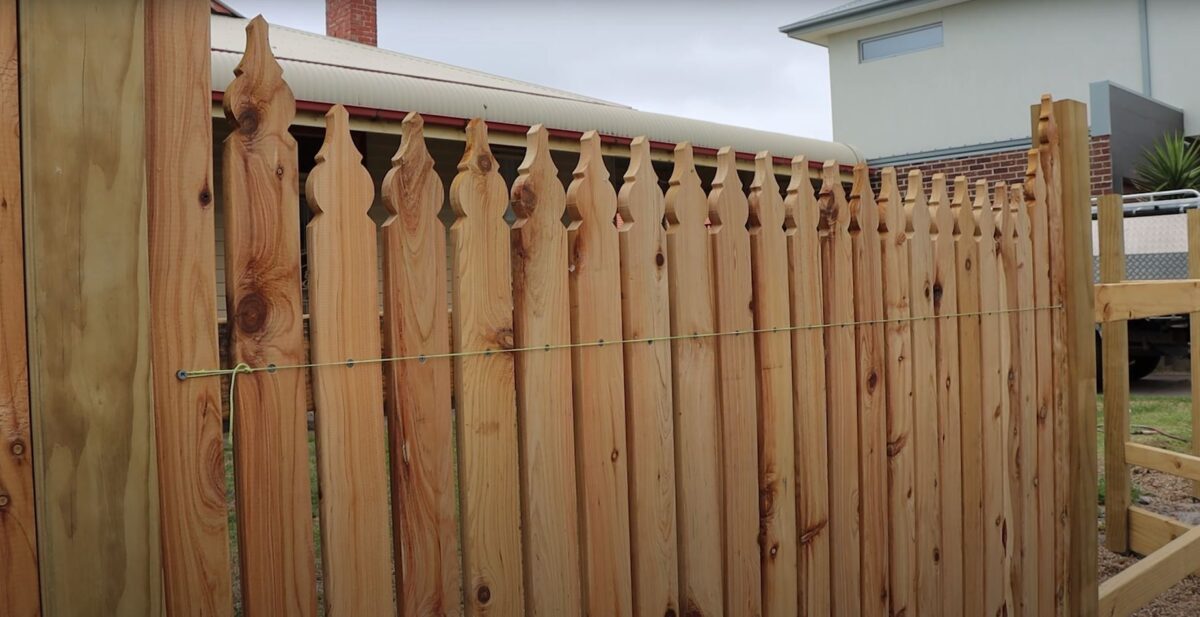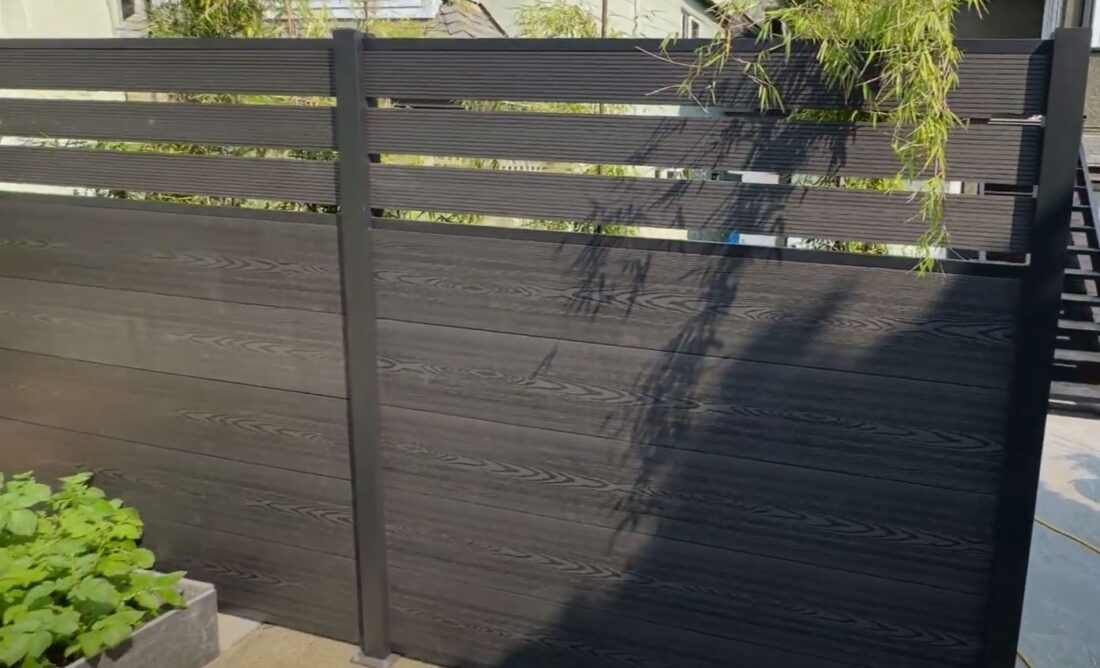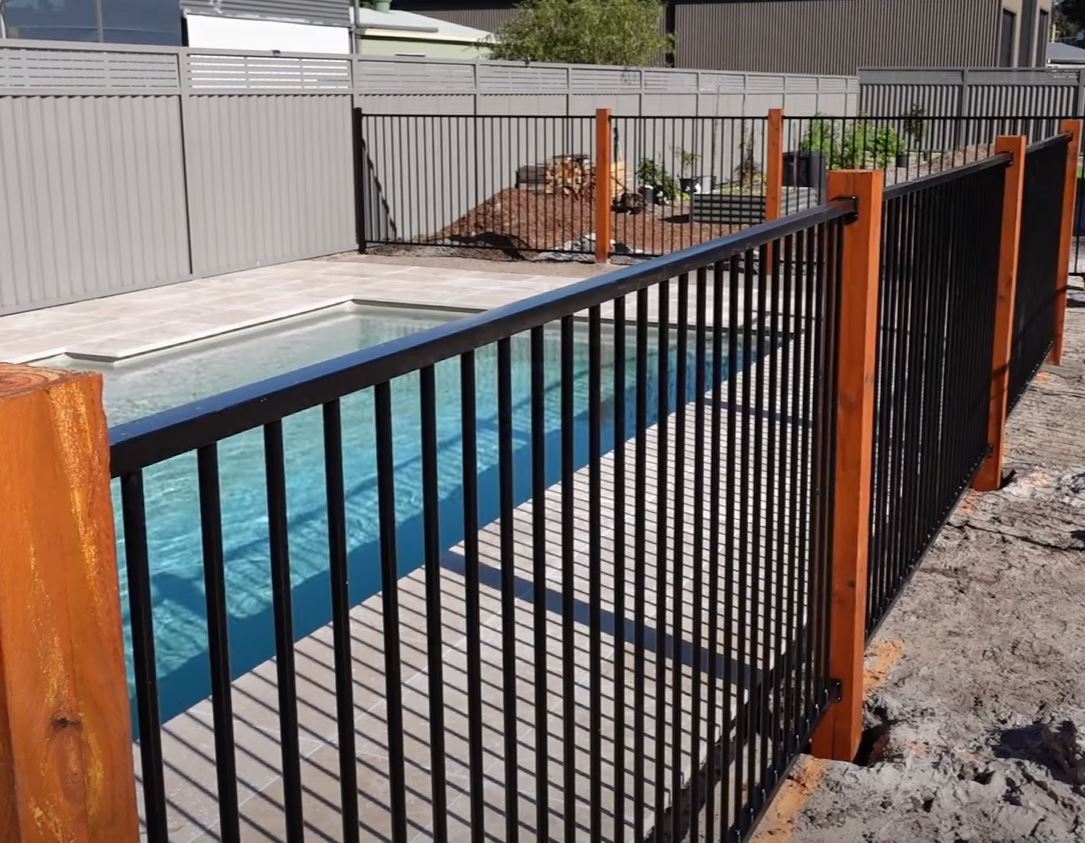Timber Fences in Auckland: Lifespan Insights
The Auckland Environment’s Impact on Timber Fencing
Auckland’s maritime climate, featuring high humidity and frequent rainfall, makes it a unique environment for timber fences. While timber is a favoured fence building material, its longevity can be influenced by several factors, from the type of wood chosen to the quality of its installation.
Types of Timber and Their Lifespans
When walking through the leafy streets of Ellerslie, one can’t help but notice the prevalence of timber fences. Various types of wood have different susceptibilities to the elements:
- Pine: With treatment, can last 15-20 years.
- Cedar: Known to last between 20-25 years due to its natural resistance.
- Treated Hardwood: Can exceed 25 years with proper care.
Maintenance: The Lifesaver of Timber Fences
A well-maintained fence can outlive its expected lifespan, whereas negligence can lead to early replacement. Regular inspection, resealing, and immediate repair of damages can significantly extend a fence’s life.
The Role of Installation
A fence is only as strong as its foundation. Proper installation, especially in challenging terrains like the slopes of Mairangi Bay, ensures your fence stands tall and robust for years.
- Post Depth: Ideally, fence posts should be set at a depth of one-third its total length for optimal stability.
- Sealants: Using quality sealants can protect wood from moisture and pests.
- Proper Drainage: Ensuring good water run-off prevents water pooling and consequent wood rot.
Alternative Fencing Materials: Beyond Timber
While timber is a classic choice, there are alternative materials available for those seeking different aesthetics or longevity.
- Vinyl: Virtually maintenance-free and can last up to 30 years.
- Metal: Resistant to pests and can endure for several decades.
- Composite: A blend of wood and plastic, offering a lifespan similar to vinyl but with the look of timber.
Safety Considerations When Installing and Maintaining Fences
Always adhere to safety guidelines during wooden fence installation and maintenance.
- Use Protective Gear: Gloves, safety glasses, and ear protection can prevent injuries.
- Safe Chemical Handling: When applying treatments, ensure proper ventilation and keep chemicals away from children and pets.
- Structural Integrity: Regularly check the fence’s stability, especially after extreme weather, to avoid accidents.
Comparing Fencing Options: At a Glance
| Fence Material | Expected Lifespan | Maintenance Needs | Aesthetic Appeal | Cost |
| Pine fence | 15-20 years | Moderate | High | Low |
| Cedar fence | 20-25 years | Low | Very High | High |
| Treated Hardwood fence | >25 years | Low | Very High | High |
| Vinyl fence | ~30 years | Very Low | Moderate | Moderate |
| Metal fence | Several decades | Low | Varied | High |
| Composite fence | ~30 years | Low | High | High |
Considering a New Fence?
Whether it’s the charming timber fences adorning Ellerslie or the sturdy metal barriers in Mairangi Bay, fences are an integral part of Auckland’s landscape. By understanding the lifespans and maintenance needs of each option, homeowners can make an informed choice. For expert guidance and top-notch fence installation, Quality Fencing Auckland stands ready to assist in ensuring your property is both protected and aesthetically pleasing.
Frequently Asked Questions: Timber Fences in Auckland
How does Auckland’s climate affect the lifespan of timber fences?
Auckland’s maritime climate, characterised by high humidity and frequent rainfall, can accelerate the deterioration of wood. Timber fences exposed to these conditions may experience faster wear and tear than in drier climates.
Which timber type is the most durable for fences in Auckland?
Treated hardwoods and cedar are among the most durable timber choices for fences in Auckland due to their natural resistance to pests and moisture.
How often should a timber fence be inspected for potential damages?
Ideally, inspect your fence at least twice a year, especially after seasons with extreme weather, to ensure its structural integrity.
What are the signs that my timber fence needs maintenance?
Signs include discolouration, wood rot, loose or broken boards, and evidence of pest infestation. Early intervention can help prolong the fence’s lifespan.
How deep should fence posts be set for optimal stability?
For optimal stability, fence posts should be set at a depth of about one-third of their total length.
Are there any safety precautions I should take when maintaining my fence?
Always wear protective gear like gloves and safety glasses. If using chemicals or treatments, ensure good ventilation and keep the area off-limits to children and pets.
Can I increase the lifespan of my timber fence with treatments?
Yes, treating your timber fence with quality sealants and preservatives can significantly extend its lifespan by offering protection against moisture and pests.
Vinyl vs. Timber: Which lasts longer?
Vinyl generally lasts longer than timber, with a lifespan of up to 30 years. However, timber offers a natural and classic aesthetic that some homeowners prefer.
How can I ensure proper drainage around my timber fence?
Make sure the ground slopes away from the fence, and avoid areas where water tends to pool. Proper drainage prevents wood rot and extends the fence’s lifespan.
Is it advisable to paint or stain my timber fence?
Staining is preferable as it penetrates the wood and offers protection against UV rays and moisture. Paint, while providing an aesthetic appeal, can chip and peel over time.
What pests should I watch out for that could damage my timber fence?
In Auckland, watch out for termites, wood borers, and certain types of beetles that can cause damage to timber fences.
How can I get professional advice on timber fencing in Auckland?
For expert guidance on timber fencing, considering factors like location, soil type, and aesthetic preferences, engage with specialists such as Quality Fencing Auckland.
Key Insights: Timber Fencing in Auckland
Auckland’s Climate and Timber Wear
The maritime climate of Auckland, with its frequent rainfall and high humidity, can expedite the wear and tear of timber fences, making regular maintenance essential.
Optimal Timber Choices for Durability
In Auckland, treated hardwoods and cedar stand out as top timber options, offering longevity due to their inherent resistance to pests and moisture.
Importance of Regular Inspections
Conducting semi-annual inspections of your timber fence, particularly following extreme weather seasons, is crucial to ensure its sustained structural soundness.
Treatment Extends Fence Lifespan
Regular application of quality sealants and preservatives on your timber fence can significantly enhance its lifespan, providing defence against external damaging factors.
Professional Expertise for Ideal Outcomes
For the best results in timber fencing, from selection to installation, consider seeking the expertise of specialists, such as Quality Fencing Auckland.



